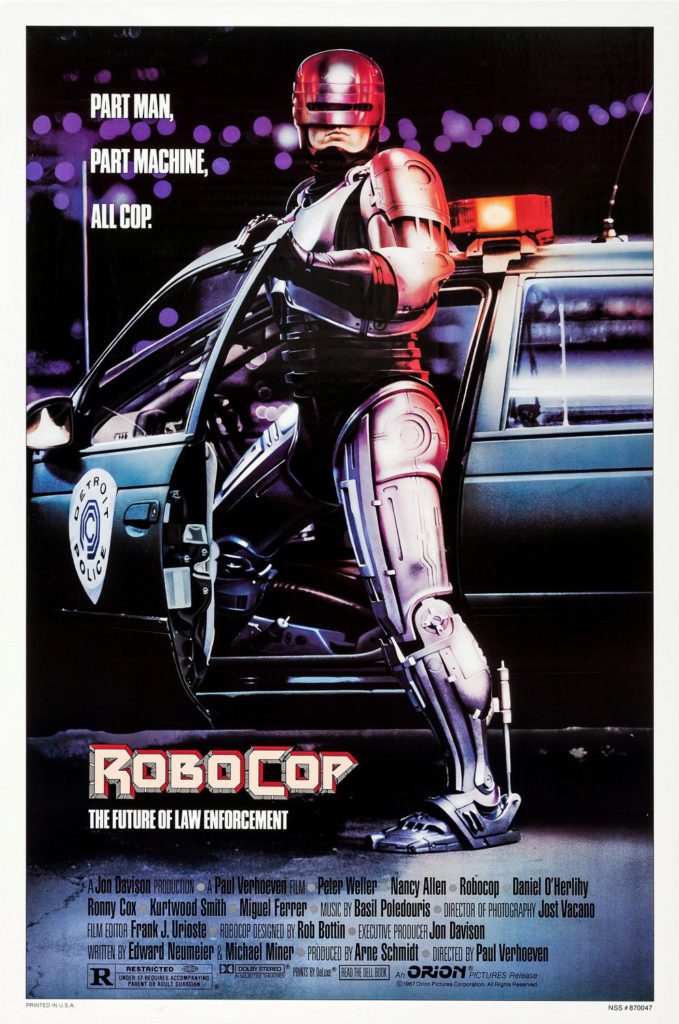Hollywood legend is replete with stories of Sylvester Stallone’s efforts to get Rocky made. Part of the fable is that Sly wanted to direct, but eventually had to agree to hand directorial duties over to someone with experience. Sly kept the starring role and Rocky was his screenplay, but John G. Avildsen sat in the director’s chair. The resulting film won Best Picture and Director, plus Best Film Editing, at the Academy Awards. When it came time for a sequel, however, Sly used the capital he had earned to secure the directing gig in addition to starring and screenwriting roles, after Avildsen declined to direct due to a scheduling conflict. The result is a film identical in theme, plot, location, and stars to Rocky, but which is inferior in execution. Continue reading “Rocky II, or, Mediocre Rocky”
Some of Those Responsible: Paul McCrane
The Blob (1988)
Things have calmed down a bit here at Missile Test. Today is the second straight day without a zombie sighting in the October Horrorshow. No walking dead, no rambling hordes, no barricaded windows or locked down shopping malls. Instead, we return to the realm of the creature feature with the 1988 remake of the classic b-horror flick The Blob. Directed by Chuck Russell, who shared the screenwriting credits with Frank Darabont, this remake is a fine movie in its own right. Continue reading “The Blob (1988)”
Robocop (1987)
 Dystopian future societies are the stuff dreams are made of. They are what grow from the seeds of our own decadence and shallowness. The moral bankruptcy, and sometimes outright horror, of the settings of films like Blade Runner, A Clockwork Orange, THX 1138, Escape from New York, and Soylent Green wouldn’t be possible if writers and directors didn’t look around them and see the lightning speed with which we throw ourselves into unknown futures, sometimes without regard for so many of the present realities which work so well and don’t need change. The ever-present message is that change, sometimes jarring change, is inevitable. Films that look to the future warily revolve around placing the viewer in the role of Rip Van Winkle. When the theater lights dim, the familiar world of today dissolves into the freak show of tomorrow. The overriding questions always being: Why are the people onscreen comfortable with this? Why doesn’t everybody see how wrong things are?
Dystopian future societies are the stuff dreams are made of. They are what grow from the seeds of our own decadence and shallowness. The moral bankruptcy, and sometimes outright horror, of the settings of films like Blade Runner, A Clockwork Orange, THX 1138, Escape from New York, and Soylent Green wouldn’t be possible if writers and directors didn’t look around them and see the lightning speed with which we throw ourselves into unknown futures, sometimes without regard for so many of the present realities which work so well and don’t need change. The ever-present message is that change, sometimes jarring change, is inevitable. Films that look to the future warily revolve around placing the viewer in the role of Rip Van Winkle. When the theater lights dim, the familiar world of today dissolves into the freak show of tomorrow. The overriding questions always being: Why are the people onscreen comfortable with this? Why doesn’t everybody see how wrong things are?
Simply put, because that’s how things in the future work. People in the future grow up among the bizarre, things we wouldn’t recognize, as though these were the normal conditions of existence, rather than a manufactured reality that mankind has created for itself. The irony is, of course, that we, in real life, away from the fantasies of Hollywood, live like these silver screen wraiths, embracing the fast pace of technological advance, throwing off the yoke of millennia of human history to embrace the dictates of the electronic age. Implicit in films that depict the future is that civilizational advance is a given, destroying the ways and mores of the past, creating something unrecognizable to those who weren’t witness. This resonates because that is exactly how our ancestors would feel would they awake in today’s world. Continue reading “Robocop (1987)”
